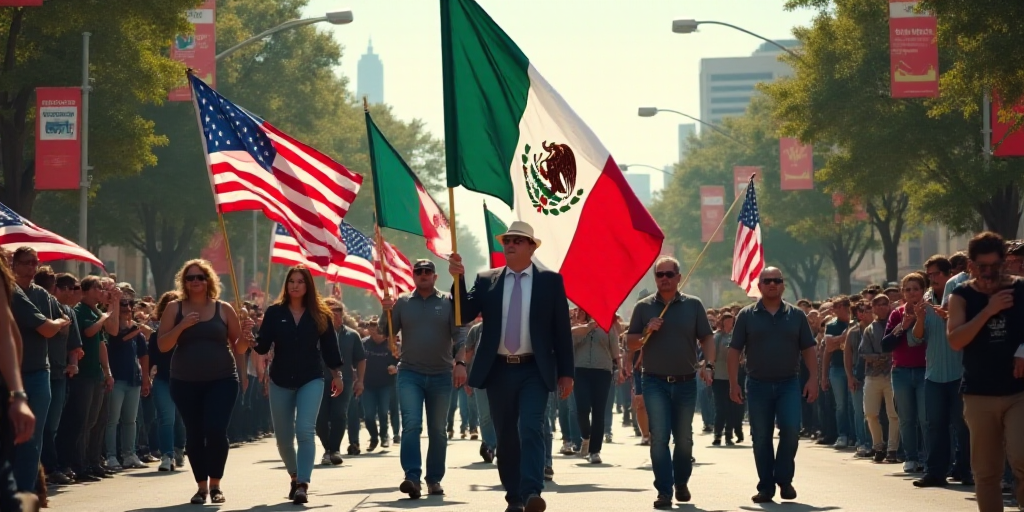Introduction and Background
In the midst of a large-scale deportation campaign led by Republican President Donald Trump, two Latina congresswomen—Republican Maria Elvira Salazar and Democrat Veronica Escobar—have introduced the Dignidad 2025 bill. This legislation aims to provide legal status to migrants who have resided in the United States for over five years, with no criminal history, by paying a fine.
Historical Context of US Immigration Reform
The last significant immigration reform in the United States occurred in 1986 during Republican President Ronald Reagan’s term. This reform granted a pathway to citizenship for millions of migrants, many of whom were agricultural workers. Since then, numerous bills targeting the Hispanic vote have been proposed but failed due to a lack of political consensus.
Key Provisions of the Dignidad 2025 Bill
The Dignidad 2025 bill targets undocumented migrants who have been living in the US since before December 31, 2020. It introduces a seven-year “Dignity Program,” which grants work and travel authorization along with deportation protection, provided they pass a background check, pay outstanding taxes, and start paying income tax.
Program Requirements
- Participants must pay a $7,000 “restitution” fee over the seven-year program duration.
- This amount is deposited into a fund managed by grants to states and organizations, assisting American job seekers or career changers.
- Participants are not eligible for federal benefits and must attend DHS interviews every two years.
- They must be employed or enrolled in at least four out of seven years, with exceptions.
Dignity Status and Renewal
Successful participants can apply for the “Dignity Status,” renewable every seven years indefinitely.
However, the Dignity Program does not provide a pathway to US citizenship.
Special Provisions for Dreamers
The bill allows Dreamers (child migrants who entered the US) to apply for citizenship in addition to obtaining legal status.
Strengthening Border Security
The proposed law also aims to bolster border security with Mexico.
Key Questions and Answers
- What is the Dignidad 2025 bill? It’s a proposed law by Congresswomen Maria Elvira Salazar and Veronica Escobar to grant legal status to certain migrants who meet specific criteria.
- Who is eligible for this legal status? Migrants who have lived in the US for over five years, with no criminal history, can apply.
- What are the program requirements? Participants must pay a $7,000 fee, pass background checks, pay taxes, and attend DHS interviews every two years.
- Does this bill provide a pathway to US citizenship? No, it does not. The Dignity Program offers legal status but not citizenship.
- What special provisions are there for Dreamers? Dreamers can apply for citizenship in addition to obtaining legal status under this bill.
- How does the Dignidad 2025 bill address border security? It aims to strengthen border security with Mexico.






